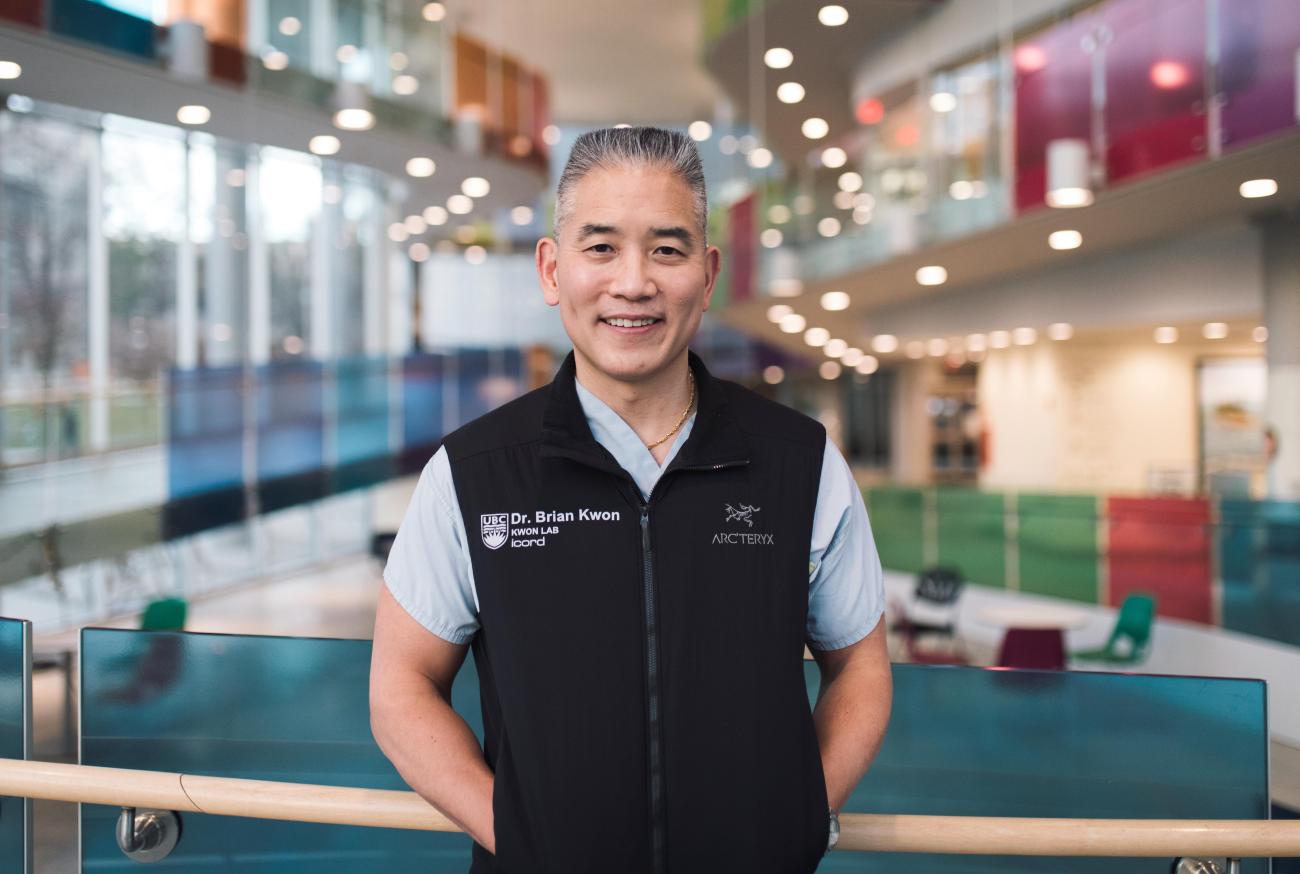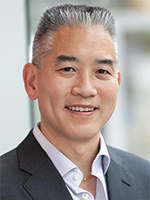
Dr. Brian Kwon strives for research excellence through multidisciplinary collaborations and focusing scientific inquiry on the problems faced by people living with spinal cord injury.
In July 2024, Vancouver Coastal Health Research Institute researcher Dr. Brian Kwon was appointed the new director of the International Collaboration on Repair Discoveries (ICORD). Kwon first began studying as a PhD student at what was originally known as “CORD” in 2000. Now a professor at the University of British Columbia (UBC), his vision for the world-leading health research organization builds on its international reputation as a hub for research excellence that is improving the quality of life of people living with spinal cord injury (SCI), including over 12,000 individuals in B.C. alone.
“ICORD is ideally positioned for collaborative, multidisciplinary research that spans the continuum of scientific discovery to clinical implementation, and will advance patient care and knowledge generation globally.”
Located within the Blusson Spinal Cord Centre at Vancouver General Hospital (VGH), ICORD and its state-of-the-art facilities reside within one of the only buildings in the world dedicated to spinal cord injury research and care. Top experts recruited from across the globe engage in innovative pre-clinical, clinical and lab-based research that is leading to breakthroughs in patient care.
“We have a unique opportunity to move all dimensions of the spinal cord injury field forward and have a major impact on the international spinal cord injury community,” states Kwon.

“My vision for the coming five years is to establish ICORD as the global leader in spinal cord injury research, innovation and care, leveraging the incredibly committed pool of scientists and clinicians at ICORD and the uniquely vibrant community of key spinal cord injury partnerships within Vancouver.”
Patient-centred research is a core theme
While the urgent need to improve the outcomes and quality of life for those who have suffered an SCI has always been the foundation for research at ICORD, additional steps are underway to further align research activities and knowledge translation to the priorities of people living with SCI, says Kwon. This will include the active engagement of persons with lived experience who will help to orient ICORD’s research mission with the real-life challenges that persons with lived experience face on a daily basis.
“This is an exciting time for our field. We are beginning to witness significant advances in care and treatment outcomes for people with SCI, including the reversal of certain aspects of paralysis.”
“Looking forward, we have a responsibility to ensure that ICORD remains at the forefront of scientific and clinical innovation and knowledge generation to further advance spinal cord research and care,” adds Kwon.


